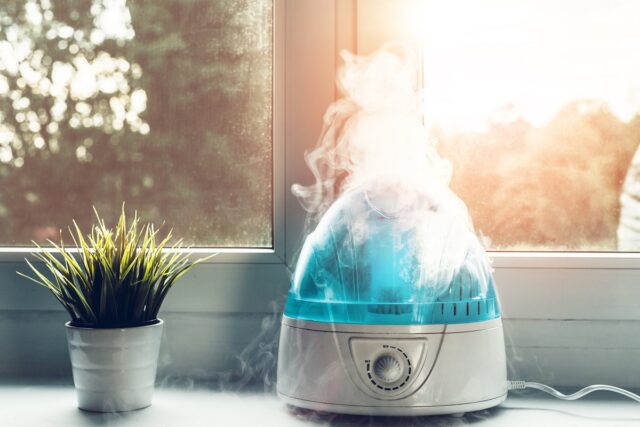
House humidifiers are those units that absorb and launder the moisture from the atmospheric air. In cooler months, when you need more humidity indoors, it is a good idea to install a humidifier for using it in your house.
This device helps increase the air moisture level and maintain a good environment among other things. A house humidifier offers several advantages for your indoor environment and overall well-being.
Here are some of the key benefits!
Improved Comfort
Using an HVAC system is a method to enhance the comfort of your home during the colder months when air conditioning can cause you to feel chilly and parched. Once you decide to switch off your humidifier and open your windows, moisture will be drawn out from your living space.
Consequently, you’ll be left with a dry environment; however, incorporating a humidifier can address this issue by supplying moisture to ensure year-round comfort.
Health Benefits

A humidifier can help with several health issues including dry skin and respiratory problems. Dry skin can cause irritation and discomfort to sensitive skin while breathing problems can lead to asthma attacks or even pneumonia if not treated properly.
Many people also suffer from sinusitis due to dry air conditions indoors or while sleeping at night, so adding a humidifier to your bedroom benefits everyone who suffers from these issues.
Protects Wooden Furnishings
A humidifier can help protect wooden furniture from drying out due to high humidity levels in your home or office space. Wood tends to absorb moisture from the air so it needs constant water for proper health and maintenance.
A wood humidifier will keep the wood moisture content consistent throughout its tank so it doesn’t crack or warp over time due to constant exposure to dry air from an inadequate humidifier.
Reduced Static Electricity
Static electricity can cause problems with electronics and make them more susceptible to damage from power surges. Humidifiers increase the moisture content in the air, which reduces static electricity because water molecules have a higher dielectric constant than the other particles in dry air (such as dust).
This makes it harder for electrons to move through dry air without being conducted by another particle. The higher moisture content in humidified air means that electrons in water molecules can conduct more efficiently; therefore, there is less static build-up in humidified homes than in homes without humidifiers.
Reduced Transmission of Airborne Viruses

Over time, a dry environment can lead to static electricity in the air. This static electricity increases the likelihood of airborne viruses being transmitted between people. One study found that viral infections were three times more common in winter than in summer. This is because the dry air allows viruses to enter your respiratory tract more quickly and stay there longer.
Wrapping up
It’s important to note that while a house humidifier can offer these benefits, it’s also crucial to maintain the proper humidity level. Too much humidity can lead to issues like mold and mildew growth, while too little can cause the problems associated with dry air.
Using a hygrometer to monitor humidity levels and following manufacturer recommendations for your specific humidifier model is essential for reaping the advantages without adverse effects.







